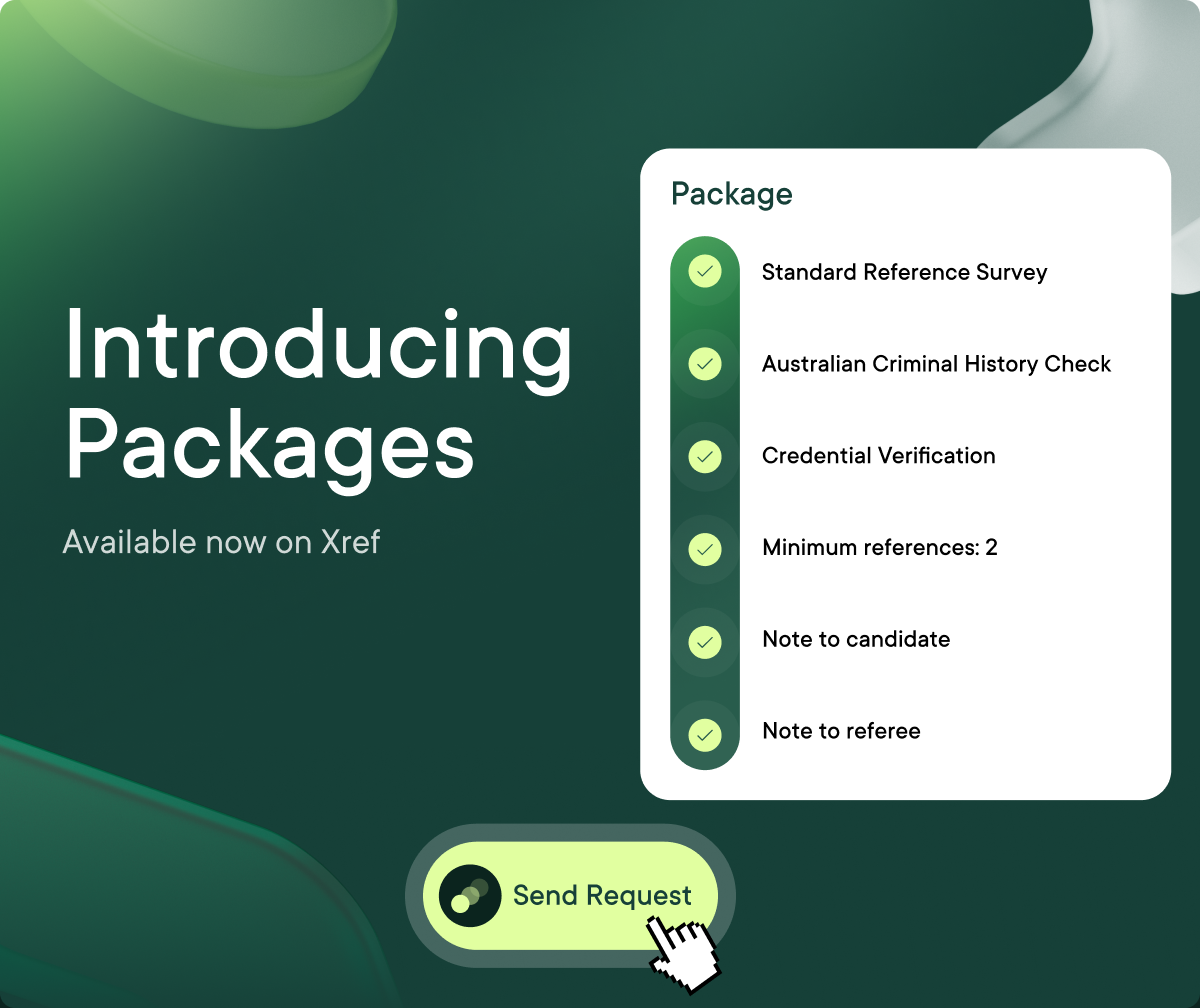


Give your people a voice with a tailored Xref Engage survey.
Increase retention and reduce turnover with quick employee feedback from an Xref Pulse Survey.
A reference check is only ever as good as the questions it includes. A great reference check should provide insights on the candidate and maintain your company compliant. It is essential to follow best practices for the structure of reference checking questions to avoid any legal ramifications and to ensure the process is providing the best information to assist with the hiring decision.
Now it's time to take a deep dive into the best way to structure a reference check question.

Using this model, you can build great questions that will grab the attention of the responder, deliver the outcomes you need and keep you out of hot water.
Here’s how we can tackle and adapt the question above with what we call the B.A.C.O.N criteria.
B - Brief
A- Applicable
C - Compliant
O - Open-ended
N - Neutral
Let's talk about these elements in more detail:
The context of the working environment the candidate will be entering is not necessary. Keep questions short, sweet and relevant by asking only about previous performance and not offering a suggestion as to why you are asking it.
Sample question:
Were they able to manage their tasks and time effectively?
Your questions must be reflective, not predictive. By their nature, reference checks are a historical glimpse into a candidate’s performance. This means you cannot expect references to provide their take on how the candidate might perform in this new role.
Sample question:
We work in a busy and fast-paced environment. When you worked with them, were they able to manage their tasks and time effectively?
Asking questions about a candidate’s personal status (e.g. marital or parental) is a major employment law violation but they still come up during reference conversations. Keep your questions gender neutral and avoid any personal probes.
Sample question:
We work in a busy and fast-paced environment, will they be able to handle the workload here? Are they willing to work on the weekends to stay on top of things?
Great questions incite stories and if you ask something that could be answered with a simple “yes” or “no” you’ll limit the information you receive in return. Keep your questions open and ask for a story about the candidate's performance.
Sample question:
Tell me about their ability to manage their tasks and time.
Reference check questions should not aim to lead the direction of the answer. Opinions on topics should not be included in the structure of the questions.
Sample question:
We work in a busy and fast-paced environment, how is the candidate's ability to handle pressure when working with deadlines?
We’ve removed the mention of working on weekends here. Expecting employees to work on weekends (or at any time out of hours) is a form of indirect discrimination as it does not take into account the employee’s personal circumstances, such as religious commitments.
Once you understand the structure of the questions, keep in mind that a good reference checking questionnaire should help you find the following information.
Let's understand the details and provide some examples:
These questions confirm the candidate information. These questions also aim to understand the nature of a candidate’s relationship with the referee and understand the candidate's working history.
Examples of essential reference questions:
Here are five reference questions you can ask to check employment.
Understanding candidate soft skills will help you gauge their future potential. It’ll also help you understand if your candidate is a good culture fit. This information will help decide if a candidate will be a long-term success.
Examples of personal attribute reference questions:
While understanding personal attributes is important, you also want to know if a candidate will be able to handle the job at hand. That’s where role-specific questions come into play.
Role-specific questions help you understand how well a candidate does their job. There’s a specific way to get the most information possible about candidate skills. We’ll cover this next.
Examples of role-specific reference questions:
The risks related to a lack of a questionnaire structure are:
Conversational reference checks can easily lead to questions like this being asked.
So how can we turn this question into something that will deliver insights and avoid any legal ramifications?
These questions do not follow the B-A-C-O-N model:
Review your existing questionnaire and ensure your questions follow a format that provides you better insights. You might want to try our free tool Template Builder. You can build your own industry or role specific reference templates using our database of over 300 best-practice questions.
